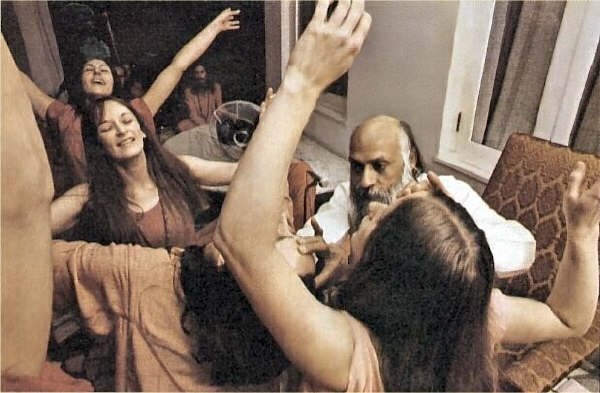"The song I came to sing remains unsung to this day"..
Rabindranath Tagore
This is the experience of all great mystics, all great poets, all great painters. Greatness is bound to have this feeling. Only small things can be completed, and only small desires can be fulfilled. The greater the desire, the more profound the longing — you are always coming closer and closer to the goal, but you never arrive. The distance between you and the goal remains almost exactly the same as it was the day you started your pilgrimage.
"The song I came to sing remains unsung to this day"… then what have I been doing all my life? "I have spent my days in stringing and unstringing my instruments"… just trying to find the right instrument, the right tuning of the instrument — but it has not happened.
"The time has not come true. The words have not been rightly set. Only there is the agony of whishing in my heart." I am going with a deep wound and agony in my heart.
"The blossom has not opened: only the wind is sighing by." These words are immensely important, because they don't describe only Rabindranath Tagore's inner experience, they also describe that of thousands more geniuses of the world.
A genius has so much to say and so much to share that there are neither words to contain it, nor are there people to receive it.
A Sufi mystic, Bayazid, was once asked by a stranger, "What is your business?" He was not aware that Bayazid was a mystic; and Sufis live just like ordinary people. Unless somebody introduces you from their inner circle, you will never come to know that this man is a Sufi. When asked what his business was, Bayazid said, "My business? I sell glasses in the city of the blind."
The man looked at him: "What is he saying? What will the blind do with glasses?"
Bayazid said, "That is not my problem; that is their problem. My problem is somehow to persuade them to purchase a pair; whether they can see through them or not, I don't know."
The man said, "You seem to be mad."
Bayazid said, "That's true."
But this will be said by all the mystics — that they are selling glasses in the city of the blind, or that they are singing songs in the city of the deaf, or that they are teaching dances in the city of the crippled. Naturally, on the one hand they have a great ecstasy, which they want to express; and on the other hand they have a deep agony — that whatever they want to express always remains inexpressible.
If you can understand this statement of Rabindranath, it will help you immensely to understand the anguish of all the mystics, of all the great poets. It will also help you to understand why many mystics have remained silent. Seeing that there is no way of succeeding, only very few mystics have spoken. They have spoken, not because they think they are able to express what they have experienced; they have spoken so that perhaps listening to them, something may be triggered in the hearts of the listeners — something may be touched. Not that their words are going to convey the truth, but their constant effort may awaken something within you which is asleep. If not their words perhaps their presence, perhaps their silence, perhaps the depth of their eyes or the grace that surrounds them… hoping against hope that among millions, at least there may be one person who may be turned on.
Hence, they are not disappointed if nobody listens to them. They are not disappointed if people desert them. They are not disappointed even if people betray them. All this is expected. The miracle is that a few people don't betray, that a few people go on with them in deep love and trust.
Their minds may not be able to understand the mystic, but their hearts have heard the call, the challenge.
In this hope I have been speaking for thirty years continually. Even if a few people are turned on to God, I will feel utterly fulfilled. I will not die with the same agony as Rabindranath Tagore.
OSHO


